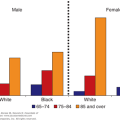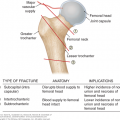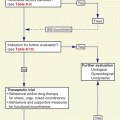Ethical Issues in the Care of Older Persons: Introduction
Ethics is a fundamental part of geriatrics. Ethics, or the provision of ethical care, refers to a framework or guideline for determining what is morally good (ie, right) or bad (ie, wrong). Ethical problems arise when there is conflict about what is the “right” thing to do. This dilemma generally occurs when decisions need to be made whether or not a medical intervention should be implemented and whether or not the intervention is futile. The answers to ethical questions are not straightforward; they involve a complex integration of thoughts, feelings, beliefs, and evidence-based data. Ageism can play a strong role in these decisions. Acknowledging and acting on the wishes of the older individual are a critical component of ethical care.
While ethical dilemmas are central to the practice of medicine itself, the dependent nature of the older adult and the imminence of death raise special concerns. Discussions of ethics and aging seem to focus on the roles of autonomy and cost containment, since a significant portion of the cost of delivering health care is incurred at the end of life.
Autonomy and Beneficence
Table 17–1 provides a description of major ethical principles. The ethics of medicine is based on four principles: autonomy, beneficence, nonmaleficence, and justice, which are geared toward maximizing benefits over harm and doing the greatest good for the greatest number. Autonomy refers to one’s right to control one’s destiny, that is, to exert one’s will. Obviously, there are limits to how freely such control can be expressed, but for geriatric purposes the principal issue revolves around whether the patient is able to assess the situation and make a rational decision independently. This raises the second concept, beneficence, which refers to the duty to do good for others, to help them directly, and to avoid harm. Nonmaleficence involves doing no harm and avoiding negligence that leads to harm. Lastly, justice focuses on fairness in the treatment of others.
Goal of ethical Care Voiding or minimizing harms and maximizing benefits. The concern and focus should be on preserving and respecting personhood. This is done through recognition of wants, collaboration, play, validating, facilitation, and giving. At the same time, ethics must recognize and deal with competition between organizational/community interests vs. individual interests |
Autonomy Refers to one’s right to control one’s destiny, that is, to exert one’s will. The principal issue revolves around whether the older adult is able to assess the situation and make a rational decision independently |
Beneficence Refers to the duty to do good for others, and specifically to avoid harm in the process |
Nonmaleficence Involves doing no harm and avoiding negligence that leads to harm. Lastly, justice focuses on fairness in the treatment of others |
Justice Justice focuses on nondiscrimination and the duty to treat individuals fairly; not to discriminate on the basis of irrelevant characteristics. This involves a duty to distribute resources fairly, nonarbitrarily, and noncapriciously |
Fidelity Duty to keep promises |
The principles of autonomy and beneficence (doing good and putting others’ interests first) conflict when others act in the “best interests” of the older individual. Clinicians can sometimes become paternalistic and undermine the personal autonomy of the individual. If acting in the older individuals’ “best interests” is consistent with the greater good of the community, then overriding autonomy is justified.
Is the patient capable of understanding the dilemma?
Is the patient able to express a preference?
Are there clear options? Have they been made clear?
Has the patient received accurate information about the benefits and risks of the options?
Are the patient’s expectations realistic with regard to treatment decisions?
What happens when the patient’s preferences are contrary to the preferences of their family or the physician?
Competence and Informed Consent
In the case of older adults, much of the concern is directed toward the issue of whether or not the individual can understand, and remember, the information being provided and whether or not he or she can express an opinion. Individuals who are comatose or who have expressive or receptive aphasia or moderate to severe dementia may not be able to communicate effectively. It is important to preserve autonomy and assess these individuals carefully for what they can understand and communicate.
There is an important difference between the concepts of competence and decision-making capability. A clinician may evaluate a patient’s capacity to make decisions, but competence is a legal term that implies that the individual has been deemed competent or incompetent by a court of law. Competence refers to a person’s ability to act reasonably after understanding the nature of the situation being faced. Someone not competent to act on his or her own behalf requires an agent to act for them.
In the case of dementia, persons may or may not be capable of understanding and interpreting complex situations and making rational decisions. Intellectual deficits are spotty. A person may get lost easily or forget things but still be able to make decisions with appropriate prompting. The presence of a formal diagnosis of dementia, even by type, may not be a sufficient indicator of the individual’s ability to comprehend and express a meaningful preference. Just as it is wrong to infantilize such patients by directing questions to others who are quicker to respond, so, too, might it be inappropriate to prejudge their ability to participate in decisions about their own care.
Determining cognitive ability and decision-making capacity is not easy. One must distinguish memory from understanding. Decisional capacity is predicated on four elements: (1) understanding, or the ability to comprehend the disclosed information about the nature of the situation/medical problem, the procedures involved in testing for example, and the risks and benefits of undergoing or not undergoing testing or treatment; (2) appreciation of the significance of the disclosed information and the potential risks and benefits for one’s own situation and condition; (3) reasoning, which involves the ability to engage in a reasoning process about the risks and benefits of a procedure or treatment; and (4) choice, or being able to choose whether or not to undergo further testing or treatment.
No cognitive screening tests are appropriate to determine residents’ decision-making capacity. Screening tools that focus on executive function such as the Clock Drawing Test or the Executive Interview are more likely to be associated with decisional capacity than other measures such as the Mini-Mental State Examination (see Chapter 6). Specific tests have been developed to determine decisional capacity, but these are generally difficult for older adults to complete because they require consideration of hypothetical situations and complex abstract thinking.
One useful and practical criterion for decision making, often used when completing an informed consent process with a resident, is to recheck with the patient after a period of time to be certain that he or she understands the situation and consistently states preferences related to a specific care situation. Depending on the setting of care, this may or may not be practical. Ideally, the decision-making process should be structured to allow the individual (and perhaps the family) to review all possible options, understand the risks and benefits associated with each, and identify which outcomes (from a large menu) they would like to achieve. In geriatrics, however, evidence-based information is typically less available to inform the individual. For example, the impact of a chemotherapeutic agent in a 50-year-old patient in terms of efficacy, side effect profile, and risk will not be the same as it is in a 90-year-old patient. Moreover, treatment options are often not clear-cut in terms of cost/benefit for the older individual, and clinicians may make decisions about which studies or findings to report to the individual in any given situation.
Although different in nature from treatment-related decisions (eg, surgery), decisions about transitions to alternative levels of care require the same level of serious attention accorded to those about treatments. Other members of the health-care team, such as social workers or nurse case managers, may be the best at delineating the choices and implications of such moves, and older individuals should be referred to these individuals as appropriate. Specific information that needs to be presented includes cost and cost-based alternatives, privacy issues, safety, social issues, and access to appropriate health care.
Advance Care Planning
Advance care planning involves helping patients begin to think about their priorities, beliefs, and values and how they want to be cared for in the face of persistent chronic illnesses and at the end of life. Topics to address include such things as whether they want to receive cardiopulmonary resuscitation, whether they want to be on a respirator, and whether they want to receive intravenous hydration or artificial nutrition, blood transfusions, organ or tissue donation, or medical devices. Other topics to include might be whether they want to get transferred to an acute-care setting for aggressive interventions, what type of funeral or memorial service they want, and whether they want to be buried or cremated. Additional information is also provided in Chapter 18.
Advance Directives
There have been significant initiatives (eg, federal laws) intended to encourage health-care facilities and clinicians, including attending physicians, to discuss with older persons their preferences in an advance directive (AD). An AD is a legal document that allows patients to convey their decisions about what type of care they want to receive in the event that they are unable to express their wishes. An important reason to encourage patients to complete their AD is that they begin to think about their care preferences prior to a crisis situation. ADs are helpful ways for patients to give direction and simplify the decision-making process. Moreover, they help an adult child feel confident, regardless of the child’s own beliefs and desires, that he or she has done what the parent wanted at the end of the parent’s life. In a same-sex relationship, an AD may be the only way in which a couple may be able to ensure who is the decision maker because the other may not have the rights of a spouse.
A living will is one way in which to express an AD. Specifically, a living will specifies care preferences when in a terminal state at the end of life. The living will is limited because it generally addresses specific clinical situations (vegetative states or terminal illness) and a few treatment options such as cardiopulmonary resuscitation, intubation, implementation of artificial food and hydration, dialysis, or intravenous use. Living wills provide a means to indicate that the patient prefers heroic measures not be initiated.
In geriatrics, however, it is helpful to carefully consider the many decisions that go into and are centered around care in end-of-life situations. Deciding when an antibiotic treatment might be life supporting versus comfort care is often difficult, and these types of decisions are not delineated in a living will. In contrast to the living will, an AD can be established that allows a health-care agent or proxy to make medical decisions on the patient’s behalf. A proxy is an individual authorized to act on the patient’s behalf if that person is unable to communicate (ie, understand and express) his or her health-care preferences. This designation can be done by using a durable power of attorney, previously used to transfer control of property. States must specifically extend their durable power of attorney statutes to cover medical decisions. Under this approach, one can specify both the person one wish to act as agent and the conditions under which such a proxy should be exercised. Table 17–2 shows the components of a durable power of attorney for health care. When the proxy is not certain exactly how the patient might respond in a given situation, the principle of beneficence can be used to guide decisions. The proxy can make medical decisions by weighing the benefits for the patient versus the burdens/risks that might be imposed on him or her to do nothing or to initiate, for example, a specific treatment (eg, excision of a lesion).
Creation of durable power of attorney for health care Statement that gives intention and refers to statute(s) authorizing such |
Designation of health-care agent Statement naming and facilitating access to (address, telephone number) agent; state laws will vary as to who may serve as agent—some states preclude providers of health care or employees of institutions where care is given; person designated as agent should have agreed to assume this role |
General statement of authority granted Statement about circumstances under which the agent is granted power and indications of the power the agent will have in that event (usually a general statement about right to consent or refuse or withdraw consent for care, treatment, service or procedure, or release of information subject to any specific provisions and limitations indicated) |
Statement of desires, special provisions, and limitations Opportunity to indicate general preferences (eg, wish not to have life prolonged if burdens outweigh benefits; wish for life-sustaining treatment unless in coma that physicians believe to be irreversible, then no such efforts; wish for all possible efforts regardless of prognosis); opportunity for specific types of things wanted to be done or not done and indications for such actions |
Signatures Individual dated signature Witnesses (better notarized): witnesses cannot be those named as agents, providers of health care, or employees of facilities giving such care |
Conditions Form should have place where person signing indicates awareness of rights, including the right to revoke the document and the conditions under which the document comes into force; some states require a mandatory maximum period where such a document can be valid without renewal |
The establishment of ADs has been viewed as an effective way in which to spare older adults from unnecessary suffering and is believed to improve the quality of end-of-life care. However, making end-of-life judgments at a time of relatively good health may be challenging as it is hard to conceptualize how one will feel in an acute situation. There is a tendency to believe that older adults, particularly those in their 90s and 100s, have lived a good long life and are ready to die. This should not be assumed. Many of these “old-old” are not necessarily ready to die; they want to receive careful evaluations of their medical problems and discuss treatment options. Thus ongoing discussions between patients and clinicians should be encouraged throughout the aging process. What a patient wants for end-of-life care at 85 years of age may be different at 97 years of age.
Federal law requires that all persons entering a hospital or a nursing home be offered the opportunity to indicate ADs. However, this is not the ideal time to expect the individual to make clear, thoughtful decisions. Too often, this exercise involves asking older persons about possible procedures they would want to have if the occasion arose. Done poorly, the experience can provoke unnecessary anxiety and lead to poor decisions that may be regretted later. Ideally, the health-care provider has discussed establishing an AD with the patient and/or proxy, and all have given time and thought to the development of appropriate documents. The acute event requires only that these previously stated decisions be revisited to make sure the choices are consistent with the individual’s current philosophy. The advantage of asking new residents in long-term care settings or newly admitted hospitalized patients about their AD is that it prompts the health-care provider to obtain this information and the older individual and/or family to make sure the appropriate forms have been completed. If it is more appropriate to postpone the discussion until the individual has adjusted to the new environment, systems should be in place to be sure the information is obtained at a later date. Most states have established a process for developing ADs, and standard forms are available on the Web for patients and/or families to download and complete (http://www.aetnacompassionatecareprogram.com/EOL/ihtEOL/r.WSEOL000/st.36926/t.36985.html). Individuals who spend part of the year in one state and part in another should be aware that state laws may vary in terms of criteria around when a living will becomes effective.
With both the living will and the durable power of attorney, there is some potential for misuse. Decisions once made can be difficult to revoke. In addition, it can be difficult to determine when an individual no longer has decisional capacity and the ability to state his or her own health-care preferences. By the same token, physicians need to educate patients and proxies that a course of treatment, once started, need not always be continued. Sometimes a trial of a particular treatment may be attempted and later removed. There is currently no test of mental competence that allows one to change one’s mind about a decision to not use life-support systems.







